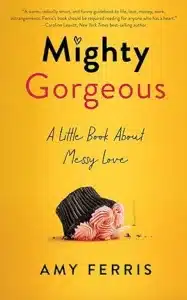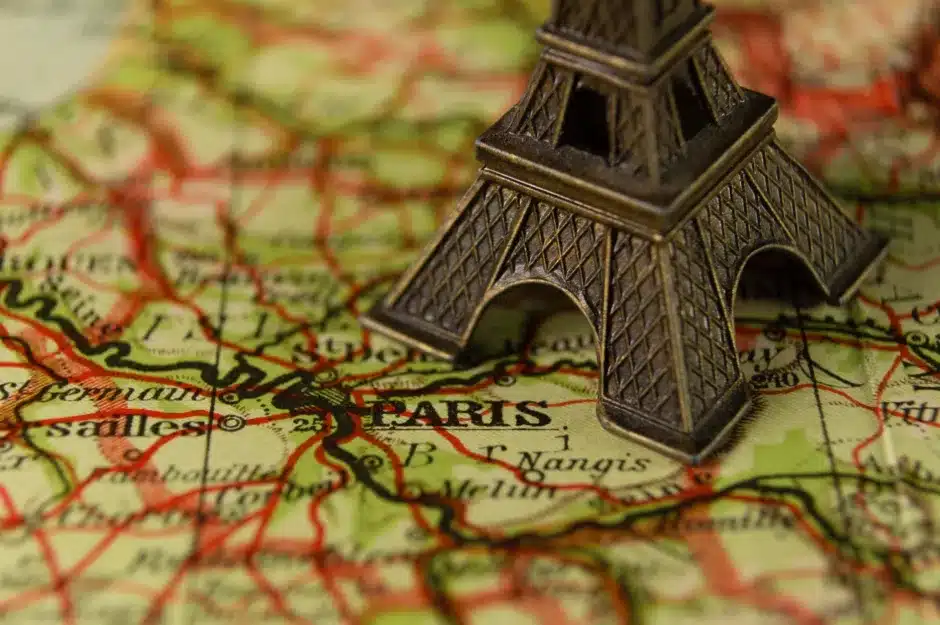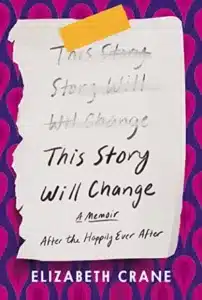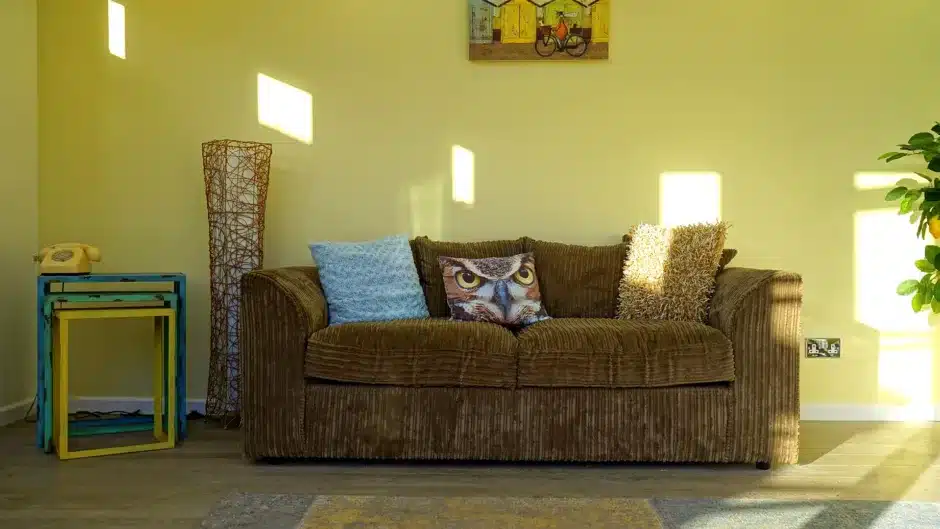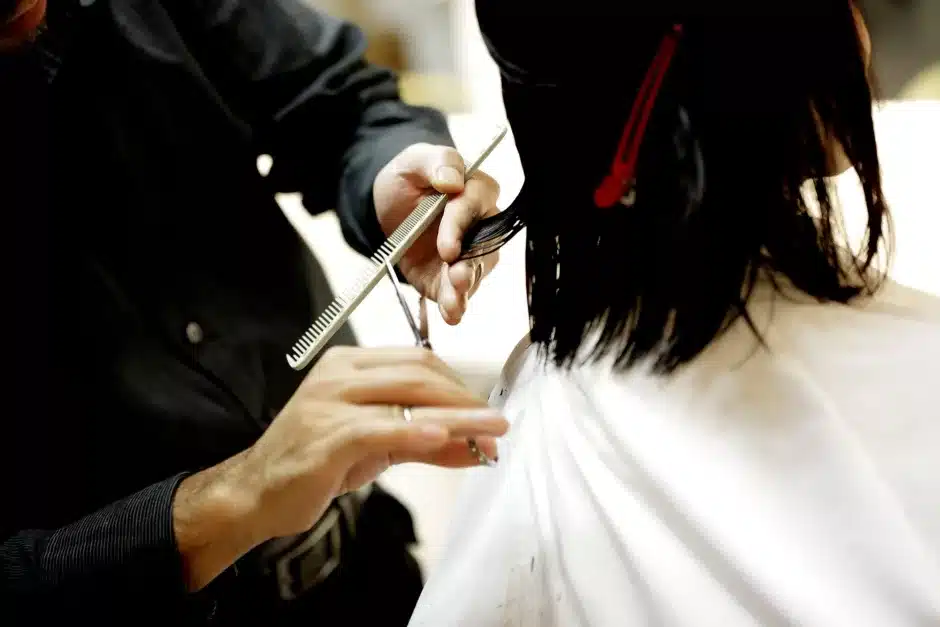As blueberry season ends, here’s what I’ve learned about legacy, tradition, and fake-family.
I took a video of my daughter yesterday. In it, she’s crouched under the branches of a blueberry bush. July marks the end of blueberry season in Texas, and my daughter is taking full advantage. Her plump face hovers over a bushel basket and she’s popping fresh berries into her mouth, one after the other, with the fervor of a ravenous woodland creature. But that’s what two-year-old’s do; they find something they love and indulge with abandon. Plus, they like snacks.
The record-breaking East Texas heat seeps through the lens and I’m sweating again just watching her. Behind my daughter, her fake-cousins each swing their own basket and root through the bushes in the shadow of their mom, Courtney. Out of frame, their baby sister rides on dad’s shoulders. She bounces, her head bobbing up and down as the two walk the well-worn rows of Blueberry Hill Farm.
I’m hot and miserable, but Courtney’s kids keep picking blueberries (and my kid keeps eating them). It’s tradition. I’m not a kid anymore, so after capturing the memory on camera, I retreat to the corrugated tin shop at the edge of the farm where they sell blueberry lemonade, blueberry donuts, blueberry ice cream, and queso fresco (sans blueberries). This is Texas, after all. The proprietor tells me the just-baked blueberry-zucchini bread is her favorite. I buy a loaf for the drive back to Dallas. Like my daughter, I like a good snack.
Back at the house, Country’s parents have a photo on their fridge—one that’s been there for 25 years. I’ve never paid it much attention, but like the quirks of a roommate or spouse, I’ve grown to know it without even trying. It’s a photo of us—me and my siblings, Courtney and hers—on a hot summer day under the East Texas sun.
My brother stands on one side of the photo in an oversized, early 90’s t-shirt. I’m next to him, holding onto my little sister. She’s in a blue checkered bucket hat and overalls. Courtney’s oldest brother carries the littlest. His grip is slipping; the pink, plump baby threatens to slide from his brother’s grasp, but the boys are smiling in the oblivious way little boys do. Courtney is last in line and wears a shy smile. She was always the quiet one. We squint in the blazing sunlight, our backs against the unruly bushes of Blueberry Hill Farm. Off-camera, our bushel baskets present a paltry offering of fresh-picked berries.
Courtney’s not the quiet one anymore. As an adult, she can befriend a tree. And more miraculous, she seems to always have the emotional energy for fresh befriending. After my daughter was born, it felt like I only had just enough heart to hold me and mine inside it. Courtney doesn’t feel that way. Three kids later and her heart is still open to all. She’ll overshare with the cashier at the gas station and chat up the vendor at the farmer’s market. She’ll spill her life story to fellow berry-pickers at Blueberry Hill Farm, and she’ll get theirs in return.
Courtney is self-assured. She has a presumptive confidence that says, “Of course you want to hear my story. Why wouldn’t you?” Like my daughter when she shows me the berries she’s picked. “You want to see this, don’t you? Of course, you do.” It’s the faith of a child, an earnest faith in vulnerability, in friendship. She always extends the invitation.
Courtney and her family, they’re our fake-cousins. We don’t share a family tree, but Courtney and her brothers can be found in every one of my birthday party pictures. Their little voices can be heard in the background of home videos from my childhood. Her parents are in my parents’ wedding album, and their faces grace our Christmas tree every year in the form of homemade photo ornaments. They’re our adverse possession family.
When Courtney was in labor with her first child, I gave my boss 10 minutes’ notice, then left the office and drove to Houston. Courtney and I hadn’t been spending much time together then. But that’s how it is with fake-cousins sometimes. You grow up, you grow apart. But you show up—graduations, bachelorette parties, weddings, funerals. You don’t talk in months, but you leave work with 10 minutes’ notice and drive through the night for the birth of their kids.
I hadn’t been to a hospital in years. I remember seeing Courtney reclined on an oversized hospital bed, swollen from preeclampsia. Even then, when she was told of her son’s complications, his rare syndrome, surrounded by wires and screens and strangers, she opened herself up to the nurses as casually as if reclining at her favorite coffee shop with an old friend. At the time, I was concerned she was disassociating from the trauma, but now I see how she—with all her flaws and gifts—was so perfectly meant for this little boy. When I gave birth to my daughter years later at the height of the COVID pandemic, I remembered Courtney’s self-assuredness, her confidence. And I realized just how miraculous it was.
Before leaving yesterday, I stopped by the fridge for a glimpse of that photo—the one of us when we were kids at Blueberry Hill Farm. It was stuck to the fridge in the same acrylic frame, in the same spot, for 25 years. After a quick look, I grabbed yet another bottle of sunscreen, then helped load our crew in the car—the third generation of blueberry pickers.
We got the blueberries, the blueberry-zucchini bread, some videos, and a fresh sunburn. But we also got a new fridge photo. Maybe the picture we took yesterday will be the one my daughter grows up with, the one that’ll stick to the fridge for the next 25 years, the one she glimpses just before she loads her crew in the car to go blueberry picking with their fake-cousins.
Having kids is like that. You can’t help but see the world through the lens of legacy. When that first photo was taken, my parents stood where I stand now. And the way I feel when I look at my daughter—it’s a well-worn row that my own parents walked. And still walk. It’s strange to realize that we may only understand how loved we are through the lens of loving someone else. Miraculous, even.
Courtney’s three kids took up most of the photo frame this year. We still only have one, though not for lack of trying. (And the one, the ravenous woodland creature, keeps us plenty busy). Conversations with fertility specialists, the endless stream of suggestions, the overwhelming weight of uncertainty. It’s miserable. I wish I were self-assured, presumptively confident. I wish for the faith of a child.
As I write this, I’m enjoying the last of the blueberry-zucchini bread. It’s fluffy but decadent. There’s a gooey zing from the blueberries, all sunk to the bottom. Baked and caramelized, they add a jammy-ness to the otherwise light bread. But I prefer my blueberries like my daughter does—fresh from the bushel basket.
I scroll through yesterday’s videos and photos, and I see the legacy grow. I see bushel baskets heaped high with blueberries and more empty bottles of sunscreen. And maybe next year or the year after, there will be more kids in the photo—more pink, plump babies. We’ll dress them in bucket hats and overalls and line them up in front of the unruly bushes. We’ll buy more acrylic frames and make room on the fridge.
I don’t know who will be in those photos, or whose faces will show up on our Christmas tree in the years to come, but I know that we’ll be back. We’ll be back to walk the well-worn rows of Blueberry Hill Farm in the record-breaking Texas heat. We’ll be back because Courtney will extend the invitation, as she always does. And her family—they’re our family. Our fake-cousins.
I’m confident we’ll be back, presumptively so. It’s a Texas tradition, after all.
A marketing professional for over a decade, Sarah has experience in media, the creative arts, and writing for brands. Whatever she works on—from talking points to television commercials—she works through the lens of narrative. She is constantly urging her clients and peers to consider: What’s the story? Who’s the protagonist? How does it end?
Sarah has an MBA from the University of Texas at Austin McCombs School of Business. She lives in Dallas with her husband and two young daughters — a toddler, and a (new) baby.
***
Wondering what to read next?
We are huge fans of messy stories. Uncomfortable stories. Stories of imperfection.
Life isn’t easy and in this gem of a book, Amy Ferris takes us on a tender and fierce journey with this collection of stories that gives us real answers to tough questions. This is a fantastic follow-up to Ferris’ Marrying George Clooney: Confessions of a Midlife Crisis and we are all in!
***


